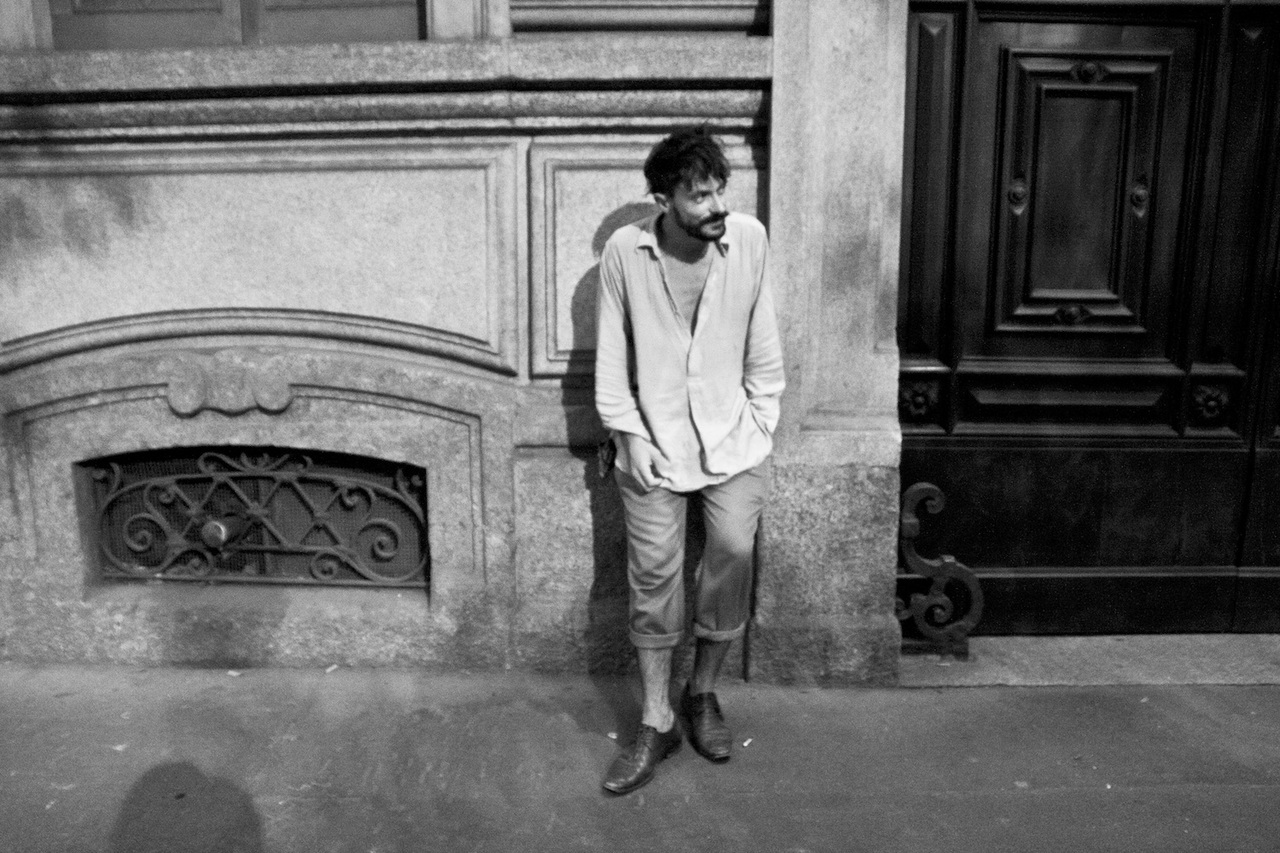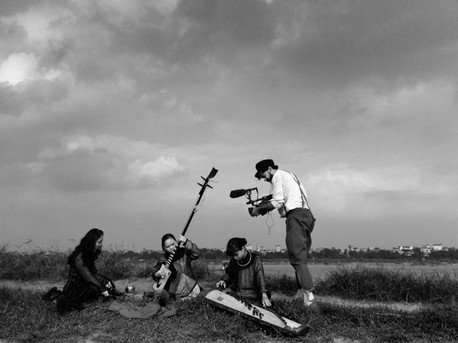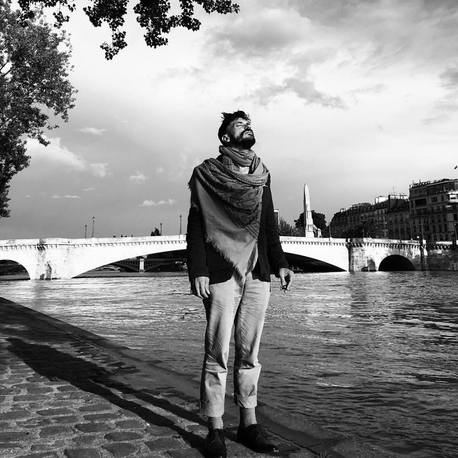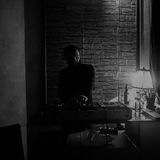Written by:
Share article:
The right vibration
Part-time nomad, indigenous music digger and ritual documentarist, French-born Mathieu Saura is the sort of person that you might have hoped or imagined exists but never got the chance to meet. I was lucky enough to have this opportunity during Outernational Days festival in Bucharest, where he teamed up with sound wizard Rabih Beaini to do a live audio-video performance.
With the unplanned help of thunders announcing a possible storm and fireworks from somewhere near the location of the festival, their show was fantastic (the audio recording is HERE, and a short video sample can be watched HERE); his ritual takes blending smoothly with Rabih’s heavy electronic, avant-garde sound explorations, as if giving glimpses into the world’s soul (Anima Mundi).
On the last day of the festival I went to tell him that we should do the interview the next day, before his flight. ‘Let’s do it now’ he said, which took me by surprise, but made perfect sense when considering the way he lives his life.
How did you get into this kind of music and rituals?
Vincent Moon: By accident. I started to leave my comfort zone, Paris, and what I was doing there, working with a very limited part of what music means: rock music, indie. That was a great period, but at some point it was enough. Then I decided to travel and ended up discovering stuff that blew my mind. It was much more than what I had expected music-wise, stuff that felt in absolute connection with the cosmic levels of consciousness. Although I enjoy being here, watching the shows, for me it is very rare that I go to see shows nowadays, because I feel like something is missing. Of course sometimes you go to a show and it's a sacred moment, you feel it.
Like the Senyawa concert in Bucharest, it was a trance experience for everybody.
VM: Yes. And that trance and that sacred relationship can reach this society, even though sometimes people are on stage and you are drinking a beer, but most of the time it doesn't happen. I felt that very well when I started seeing ceremonies and rituals. Not only for their musical brilliance, but also because there's another level of culture and form. Now I'm interested in bridging these two aspects: this deeply respectful relationship with the invisible through music and the whole spectacle aspect of it.
Is music a sort of pretext for your search for trance in this world? Do you think you will do this for the rest of your life? Yesterday I was really struck by the intensity with which you lived the Italy-Germany football game.
VM: Nowadays I try to look for this trance and excitement in all the aspects of life but still I will continue to explore the world around the music angle, but then again, what is music? What do you limit music to? Go to the forest and you will hear the most beautiful music. You don't need people doing stuff with instruments if you are able to listen. Yesterday when I heard about field recording I asked myself if I'm doing it. Of course I know what it means, but I believe that's the natural way, you don’t need a term. I have no love for studio recordings. I think it's really fucked that we live in a society where we consider studio recordings more important than 'field' recordings, because it's not true to what music is.
Do some people use these fancy words in order to validate their seemingly inconsistent work, so as to give it a higher status?
VM: For sure! As I said, for me it's only natural to record this way. I think it's a very interesting topic for our generation, which is so much into recording everything. At some point, even if you are preaching living the moment, you're always looking back. In a sense I try not to care about remembering many elements of the past and, somehow, that keeps me going. You feel a bit freer from all the mistakes you made in the past. I was raised in this society, which is so concentrated around guilt, but my travels into spirituality have been helping me to get over that and now I just don't care, in the most beautiful way. I experience this also in the live shows with Rabih Beaini; you just let it go and you know it's going to be good even though I tend to ask people what they thought. When you get totally immersed in what you're doing you feel you're on the right vibration.



